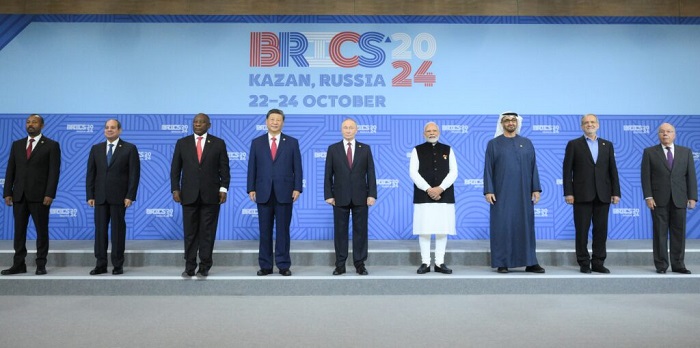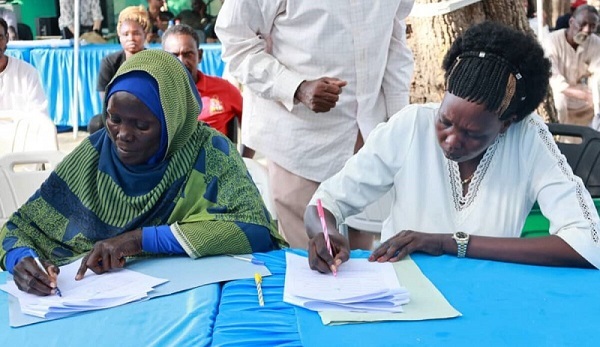by LUKE ZUNGA
JOHANNESBURG – SCOTTISH economist Adam Smith (b. June 1723) propounded that economics is a science of production and distribution of wealth and prompted that “…the real tragedy of the poor is the poverty of their aspirations.”
He was saying the poor countries and their populations are limiting themselves by a lack of creativity to produce in abundance.
The coming together of BRICS countries (Brazil, Russia, India, China, and South Africa) was a good idea.
The enlarged bloc is called BRICS+ (in addition to Egypt, Ethiopia, Indonesia, Iran, Saudi Arabia and the United Arab Emirates).
Brilliant idea but there is no clear strategy to leap out of low growth and poverty within BRICS+ countries, because they have no Capital or have no system to raise Capital.
Capital is the ingredient required to fast track development. Without capital BRICS countries will always lag the West.
They will continue to lag behind because there is no bank or funding agency to start new businesses and there is no system on how to finance to start a business, especially in manufacturing.
The current system, used by banks, only finances operating and existing businesses.
To catch up, the BRICS countries must start businesses at a faster pace. China designed a new system and provided the funding, not just handing over money but into programs using Project Management Book of Knowledge to hedge potential losses, to guide participants and it worked.
Economists and politicians in other BRICS countries refuse to follow suit, for no clear reasons other than “the poverty of their aspirations”.
BRICS started the New Development Bank in July 2014. Banks mobilize available capital, facilitate transactions and provide loans, but not Capital.
Banks are supervised by the Basel Committee headquartered in Basel, Switzerland.
The operation of banks is structurally the same. There are those who propose setting up new banks for their development.
It is not quite the answer. A new bank will not be substantially different from current banks. It can only be an alternative, not a capital providing structure.
What is missing is Capital, which will use the banks for transactions. China evolved forward by designing a capital availing strategy, not by creating new banks.
BRICS New Development Bank is an alternative to the World Bank, Paris Club etc. In the Book, What Economists Are Missing, found at Amazon, the author pens down various ways of raising Capital so that citizens’ ideas are germinated as new businesses or industries.
Capital is organized. Europe and America organized capital through war, forceful seizure of land from indigenous less strong inhabitants, piracy on the seas such as the activities of Sir Francis Drake, plunder, exploitation, colonization, slavery and systems such as apartheid.
In China the British sold drugs to Chinese at Hong Kong resulting in Anglo-Sino wars, known as Opium wars, from 4 September 1839.
The British forced Chinese to consume opium, an illegal drug today, activities which cannot be done today.
The goal of a country should be germinating businesses to reach 5% of the population.
The capital for this should be organized collectively, not individually. Individuals acting alone cannot do it.
Why is it difficult for economists to understand?
There are modern ways of raising capital. The book suggests using mobile phones to contribute small amounts, such as 1 cent on the successful activation of the sim card when making calls and sending emails.
The book also explains methods on how to facilitate starting new business without losing the capital advanced or ever closing the factories started in programs, organized industrial sites, for manufacturing and marketing.
I made calculations for all BRICS+ nations and other countries. It is easy to implement. China does not require it.
Through mobile contributions, Brazil can raise US$3.5 billion every year, Russia US$292 million, India US$732.7 million, South Africa US$242 million, Ethiopia US$27.7 million and Egypt US$120.3 million to seed poor citizens to start entry level factories.
Saudi Arabia and the United Arab Emirates (UAE) appear non-committal to BRICS. The contributions allow Iran to redenominate its weak currency for its 9.9 trillion Rial mobile contributions to play a more meaningful role.
Other countries which must re-look at their exchange rates are Russia, India, Ethiopia, among others.
Unfortunately, BRICS economists advise their governments to attract foreign investors from European and American sources.
This has limited pace for economic development because every country is looking for the same investors, and there are not many enough foreign investors to go around.
Further, this approach keeps BRICS+ countries, outside China, to remain underdogs to Europe and America.
The only way to catch up is to raise capital to facilitate citizens into production at a pace which will germinate enough businesses to reach 5% of the populations for each country within 10 years.
If BRICS+ countries do not raise their own Capital, within their countries using one of the methods in the book, then the BRICS project is a pipedream incapable of competing with the West and the United States.




